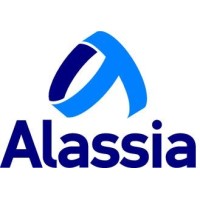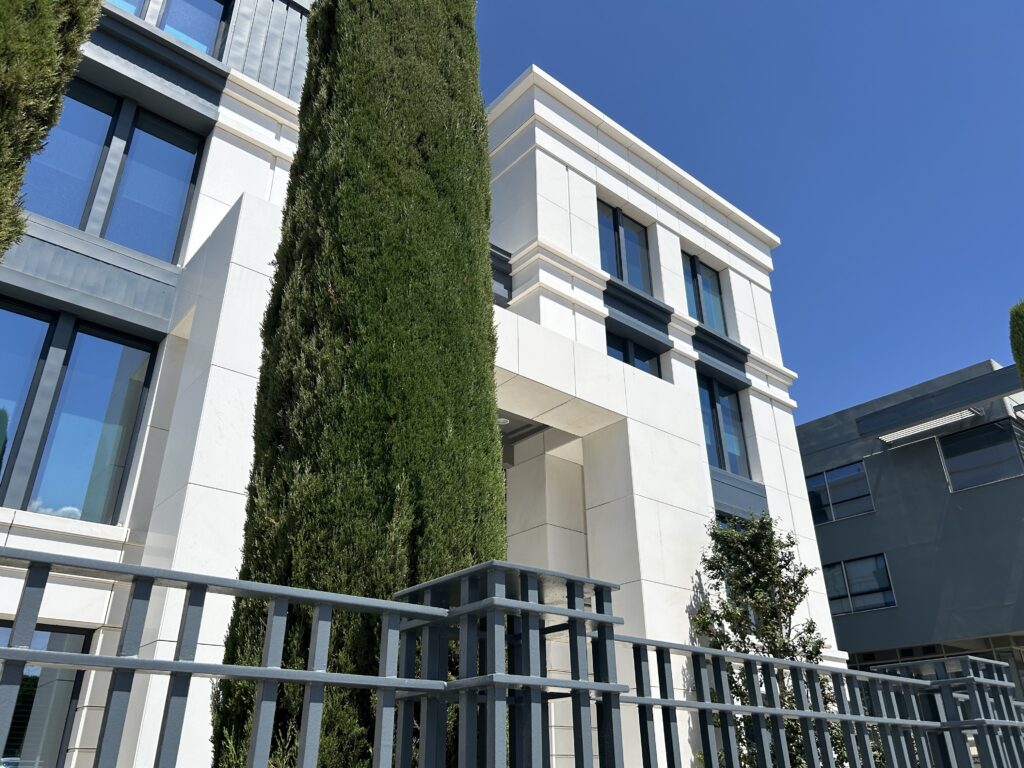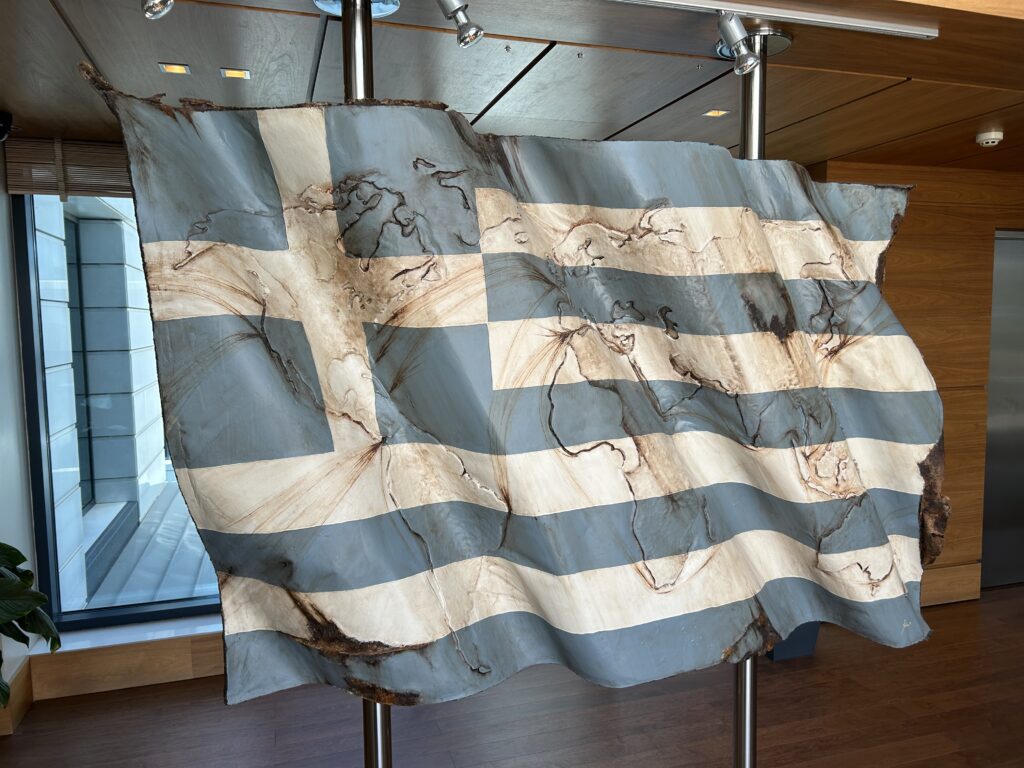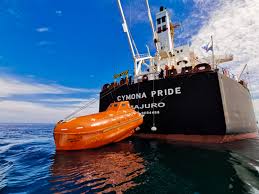Alassia NewShips Management, headquartered in Athens, Greece, is a ship management company established in 2009. As part of the CYMONA group (headquartered in Monaco), Alassia provides the full spectrum of dry bulk ship management services. We spoke with Nicolas Hadjioannou, CEO of CYMONA, and Basil Sakellis, CEO of Alassia, about the strengths of both companies.
(Text by Hirofumi Yamamoto)

■Long history of the company
―First, could you explain the relationship between Alassia as a shipowner and CYMONA?
Hadjioannou: “Alassia is a ship management company, while CYMONA is a ship-owning company. This relationship is not uncommon in Europe and represents a typical business model. These two companies consist of an entity that owns all the assets and ships, and another that manages and operates those vessels. Usually, the management company exists solely to manage the shipowner’s vessels, often referred to as a captive management company.”

―Could you provide an overview of CYMONA?
Hadjioannou: “CYMONA is currently headquartered in Monaco. Our fleet includes eight Panamax vessels, one Ultramax vessel, and three new builds on order. This includes a 64,000 DWT vessel completed at Oshima Shipbuilding this year, an 82,000 DWT vessel at Oshima Shipbuilding, and another 40,000 DWT vessel.”
―What services does Alassia Shipping provide?
Sakellis: “As a ship management company, our services include: 1) maintenance and technical supervision of vessels, 2) arranging and supervising dry docking, repairs, and modifications, 3) appointing inspectors and technical consultants, 4) operations management, 5) crewing management, 5) management of supplying spares, stores, and provisions, and generally providing all other necessary functions for technical management.”
―Could you tell us about the history of CYMONA?
Hadjioannou: “Shipowning has been a family business for the Hajiioannou family. I’d like to begin by explaining what kind of organization we are and what we’ve done up to this point. We started in the shipping business in 1958. My late father and uncle purchased their first ship, and in 1965, my father started his own business, Alassia Steamship Corporation. He understood the risks associated with shipping investments and always maintained a conservative approach, striving to provide the highest quality service possible. This spirit has continued within our family business and has been passed down to the new generation. “

“In 1993, the company name was changed to Safety Management. In 1999, we shifted towards a new form of more efficient shipowning and invested in new building vessels in Japan for the first time. In 2008, we were listed on the New York Stock Exchange. Subsequently, in 2009, I established a new business as a private enterprise with the cooperation of Sakellis, who is here beside me. This marked the beginning of the new ship ownership and management under the name Alassia NewShips Management Inc. We continued to do what we had been doing before, just under a new name.”
■High new building price
―What are your thoughts on Japanese shipyards?
Hadjioannou: “Alassia officially started its operations in 2010. We continue to focus on the Japanese market while maintaining the same mentality of loyalty and high-quality service. We deeply understand the value of Japanese shipyards. CYMONA, operating in Monaco, primarily handles the commercial and accounting aspects of shipowning. We plan to continue our relationships with Japanese shipyards, particularly with Oshima Shipbuilding, leading the way.”
―New building prices are soaring. Do you think this trend will continue?
Hadjioannou: “In my opinion, new building prices correlate with chartering market prices. So, if the shipping market remains strong, new building prices will continue to rise. Conversely, if the market declines, ship prices will quickly adjust. Over the past 50 years, I have never seen this fluctuation stop. We are transporting commodities, and commodity demand fluctuates. Essentially, the market sets the new price, not the other way around. Therefore, I believe new building prices will remain high for a while, but it will ultimately depend on market conditions. Separately, the shipping industry is undergoing a technological and environmental transformation, and eventually, new technologies will emerge.

■Not only new fuels
―What are your views on new fuels?
Hadjioannou:”
“We are a private company that owns between 10 and 20 ships. For companies like ours, deciding which alternative fuel to invest in feels a bit premature. The major players in the shipping industry are generally publicly traded companies. These large corporations are in a better position currently to consider vessels powered by alternative fuels. At present, it seems that methanol is being chosen as an alternative fuel for dry bulk shipping. However, this is always subject to change. Personally, I have many questions about methanol, such as its price and availability. “
“There are incentives to invest in these alternative fuels from a regulatory standpoint. However, we understand that in decarbonization, the true alternative fuel must be considered in the context of its entire supply chain—where it is produced and how and where it is burned. Green methanol is expensive. We are still learning and discussing these matters. Therefore, at this time, our company maintains a healthy balance sheet, and we must continue to keep our balance sheet strong to be able to invest in new fuels in the future.”
―Do you have alternative measures to reduce CO2 instead of introducing new fuels?
Sakellis:” It is crucial for everyone involved in shipowning and chartering to consider how to reduce carbon dioxide emissions. However, at the same time, investing in efficient systems requires significant capital. For shipowning companies like ours, we need to be very cautious. From our perspective, we are a private company sourcing capital from equity, with a conservative long-term outlook. Currently, we are focusing on retrofitting existing vessels with low-cost systems. For example, low-friction hull coatings, data monitoring systems around the propeller, and weather routing systems.”
“These systems are cost-manageable and can achieve savings of over 10%. This means that if you already have very efficient ships and improve them by 10%, the results will be excellent. At the same time, we are closely monitoring other potential systems such as carbon capture systems. We are in discussions with manufacturers of these systems, Japanese shipyards, technical offices, and inspection associations. In the meantime, regarding new builds, we have focused on existing designs, meaning traditional fuels. The designs of new buildings from Japan are far more efficient than existing high-quality vessels. Therefore, in conclusion, we believe that we are already on the path towards decarbonization, by modifying existing ships and ordering super eco-efficient ships even if they run on conventional fuels. In addition, as mentioned, we are maintaining our balance sheet as conservatively as possible so that we can invest in alternatives in the medium term.”
―What do you prioritize when selecting an operator?
Hadjioannou: “We focus on long-term relationships. We always aim to contract with the best charterers or the largest companies. Of course, to achieve this, we understand that we must sometimes provide exceptional service. When entering long-term contracts, we always make sure to contract with reputable charterers. This is the most important thing for us, and even if the rate is slightly lower than that offered by mid-sized shipping companies, we choose the top-tier ones. This is because contracting with a charterer is not just about earning charter fees but also about whether both companies can ensure smooth operations together.”
〆インタビュー:アラシア・ニューシップス・マネージメント(Alassia NewShips Management)
〆船主業と船舶管理業、伝統を持つ家業の精神をドライバルク事業で生かす。
アラシア・ニューシップス・マネージメント(本社・ギリシャ、アテネ)は、2009年に設立された船舶管理会社だ。アラシアは船舶保有会社のサイモナ(CYMONA、本社・モナコ)のグループ企業として世界中でドライ貨物を輸送する船主、オペレーター(運航船社)に船舶管理サービスを提供する。サイモナのニコラス・ハジオアCEO(最高経営責任者)とアラシアのバジル・サケリスCEOに両社の強みについて聞いた。(Text by Hirofumi Yamamoto)
―最初に船主業としてのアラシアとサイモナの関係について聞きたい。
ハジオア:「アラシアは船舶管理会社であり、サイモナは船舶保有会社である。この両社の関係は欧州では珍しいことはなく一般的な事業形態だ。この2社には、すべての資産や船舶を所有する事業体と、それらの船舶を管理・運航する事業体があり、通常、管理会社はその船主の船舶を管理するためだけに存在する。通常はキャプティブ・マネジメント・カンパニー(親会社のリスクを専属的に引受ける子会社)と呼ばれる」
―サイモナの概要は。
ハジオア:「サイモナは現在、モナコに本社を置く。保有船はパナマックス8隻、ウルトラマックス1隻、新造船の発注残は3隻ある。1隻は大島造船所で今年竣工した6万4000重量㌧型、大島造船所に8万2000重量㌧型1隻、これ以外に4万重量㌧型がある」
―アラシア・シッピングのサービス内容は。
サケリス:「アラシアは船舶管理会社として、船員の訓練と成長に投資し、忠誠心を促し、動機付けを確保することを目指している。船舶管理業務以外では、①船舶の保守・技術監督、②ドライドッキング、修理、および改造の監督を手配、③検査員および技術コンサルタントを任命④技術管理の提供に必要なすべての機能の提供―などである」
